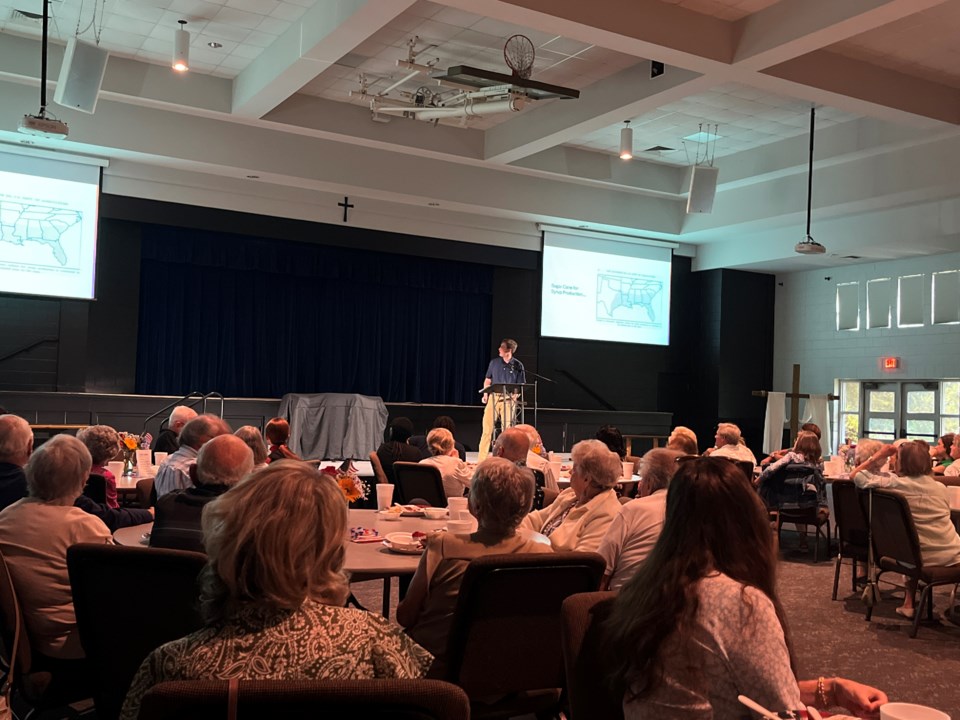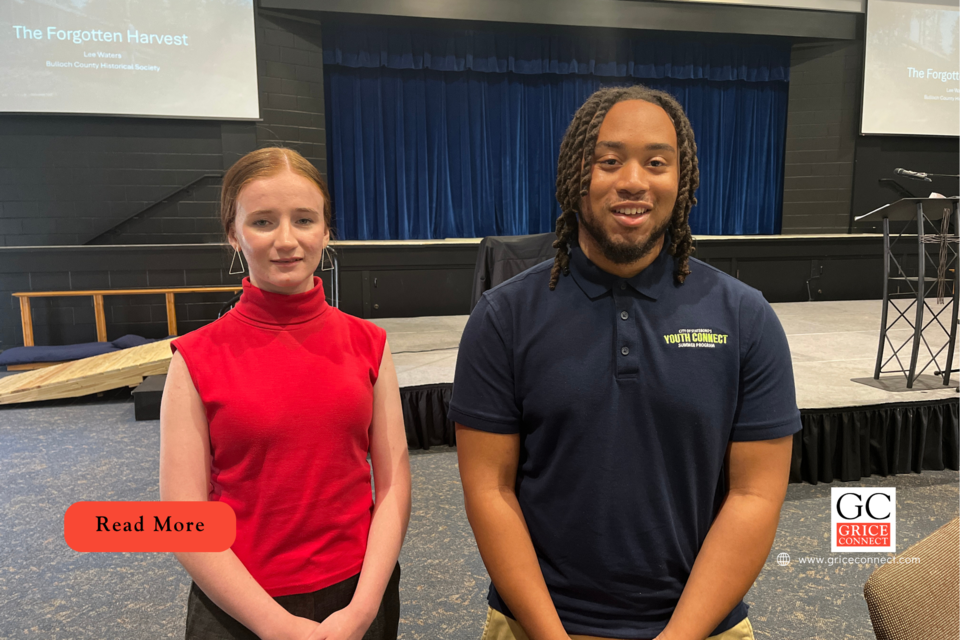The Bulloch County Historical Society's June meeting offered members a blend of historical insight and student recognition, as the group welcomed local syrup producer Lee Waters for a detailed presentation on the history of sugarcane syrup-making in the region, followed by the awarding of the society’s annual scholarships.

Waters, a member of the BCHS board, presented on what he described as a largely overlooked but once widespread practice in Bulloch County: small-scale syrup production on family farms. While Waters is known for his work at L.A. Waters Furniture in Statesboro, he has also built a well-established seasonal syrup operation on his family’s farm, where he grows several acres of sugarcane and distributes syrup to stores across Georgia.
His presentation traced the local history of syrup-making from the 1800s through the mid-20th century and detailed the tools, techniques, and regional context that defined it. Using a series of photos, maps, and historical records, Waters walked attendees through how syrup-making was once a seasonal ritual embedded in the fabric of rural South Georgia life. He explained that nearly every farm either produced syrup or had close access to someone who did.
From planting and maintaining rows of cane to grinding and boiling the juice, syrup-making involved both agricultural knowledge and mechanical skill. Families used two-roller cane mills—some powered by mules—and heavy iron kettles to cook down the juice over wood fires until it thickened into syrup. These setups were fixtures on Bulloch County farms well into the 20th century.
Waters emphasized the role of regional foundries, including Kehoe Iron Works and Rourke Iron Works in Savannah and Golden’s Foundry in Columbus, in shaping syrup-making infrastructure across Georgia. He displayed several archival advertisements from those companies, along with photos of mills and kettles still in use today.
Some, he noted, were passed down through his own family and are still operational during his fall harvest season.
The presentation also covered changes in technology and technique, from wood-fired furnaces to modern propane heating systems, and from basic skimming tools to hydrometers that gauge syrup readiness with greater precision. Waters described how certain varieties of sugarcane—such as Georgia Red and POJ—have traditionally been favored for syrup production due to their flavor and color, while others are now largely obsolete due to disease susceptibility.
The society’s members responded with curiosity, asking technical questions about the differences between two-roller and three-roller mills, growing conditions, and yield. Waters, who grows several varieties of cane on roughly six acres, explained that while the practice remains labor-intensive, it remains a source of personal pride and community connection.
His syrup brand, Pop’s Pure Cane Syrup, is labeled with a painting of him as a teenager—artwork done by his grandmother. Today, he continues to operate one of the state’s most active syrup-making sites, with sales in approximately 15 retail outlets.
In addition to the presentation, the society recognized three high school seniors as winners of the annual Bulloch County Historical Society Memorial Scholarships. Each student submitted an original essay reflecting on a moment or figure in history they would like to engage with if given the chance. The winning essays were noted for their creativity, research, and personal voice.
Katlyn Sullivan, a graduate of Statesboro High School, was awarded the $2,000 first-place scholarship. She will attend the University of Nebraska. Alan Beasley, who graduated from the STEAM Academy and will pursue a degree in finance at Georgia Southern University, received the second-place scholarship of $1,500. Madison Herman, a Bulloch Academy graduate currently traveling abroad with her family, received the $1,000 third-place award. Her family accepted the recognition on her behalf. All three students were applauded by society members for their thoughtful essays and strong academic performance.
Also during the meeting, BCHS leadership notified members of proposed amendments to the organization’s bylaws. Changes under consideration include establishing a president emeritus position, revising board rotation practices, and formalizing procedures for the management of a recent large donation to the society’s scholarship fund. No action was taken, as the organization’s rules require that such proposals be shared at least a month in advance of any vote.
The meeting concluded with an invitation to return in July for a presentation by noted historian Dr. Paul Pressly, former director of the Ossabaw Island Education Alliance and this year’s Georgia Historical Society honoree.
Attendees were encouraged to bring guests and continue supporting the society’s mission to preserve and share Bulloch County’s history.




